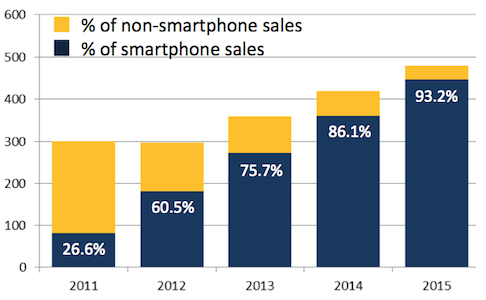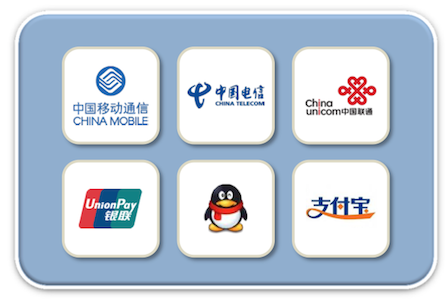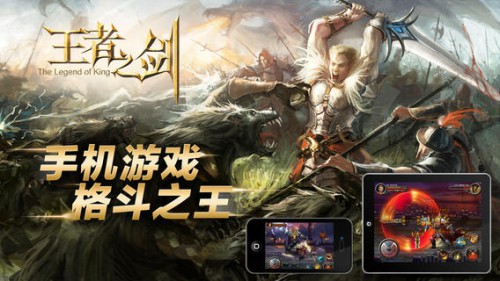At the end of July, Unity technical evangelist Oleg Pridyuk at habrahabr.ru He opened a series of publications about the mobile games market in China. With Oleg’s permission, today we are publishing the third part of his story on App2Top.
At the end of the summer, I accompanied John Goodale, Vice President of Unity Technologies in Asia, on his trip to St. Petersburg. I knew about our Unity Games China division and about the newly announced support for Tizen, so I did everything to impress John with the projects of Russian developers and the atmosphere of the Russian gaming industry, hoping to set up fruitful communication with our Asian offices.
I was very surprised at the time: literally all the studios we visited already had experience working with China, but there were no positive results at all.
“It is possible to agree on a maximum of 5% of the income, but, in the end, it is unclear how to take even that promised meager. Moreover, it does not work out to get either analytics or user data, in fact, any information about your own application,” almost all of our interlocutors said. In the worst case, a clone application appeared in one of the hundreds of app stores, and partners stopped responding to calls and emails.

The problem is that in China, the mobile content market is crowded with intermediary companies ready to help bring the application to market. “There are more than 400 Android app stores in China, we want to cover only the best – the top 20,” says Andrew Tang, head of Unity Games China, “but usually the developer is offered 3-5% of the revenue, maybe 7% if lucky. But we were able to achieve more favorable conditions — 20%, sometimes more, because we agreed with top providers. In other words, we are talking at the level of top management. For this reason, we can offer good conditions to the authors of the games. It is difficult for a Westerner to understand that intermediaries take not 20-30%, but 80-90%, but these are features of the Chinese market. The huge market allows you to extract significant benefits and with 10% of the income.”
“China is like the European Union, but in Asia: 23 provinces, 4 municipalities, 5 autonomous regions, 2 regions of a special order of administration. People of different cultures, with different languages, regions of very different levels of development,” explains Allen Fu, head of Unity Games China, “about half of the population of 1.3 billion live in cities, and more than 40 of the largest cities are in developing regions.”
Most of them are mobile device users. If you count the accounts of mobile operators, you will get an impressive figure of 1.1 billion. About half of the subscribers access the Internet from their phone, 20% have access to 3G networks.

Smartphone sales in China. Source: Enfodesk ResearchThe Chinese Internet Information Center considers 286 million mobile users to be active gamers.
The calculator and common sense come to the conclusion: 2/3 of the potential gaming audience does not have a fast mobile Internet.
“Most of the time, people only have 2G,” confirms Bobo Bo, community manager of Unity Technologies China, “so it’s very important that the game is small: the smaller the better, otherwise people won’t even be able to download it. Most of them have strict limits on mobile traffic, and there are not so many Wi-Fi networks in China yet.”
This picture is organically complemented by the following figure from a source already familiar to us: 72.4% of players have never paid for games or content in games.
Nevertheless, the mobile games market in China in 2012, according to various estimates, ranges from 521 million to 960 million US dollars.
Agree, even a small part of this pie is worth the effort.

“It is very important to make the payment process as fast as possible, without filling out forms and entering numbers, payment via SMS services works best, even if you have to pay tribute to the operator,” Allen Fu shares his experience, “but often the choice of payment system is dictated by the app store. We have put together a special SDK that supports top billing systems. In most cases, we can provide one—button payment – this is very important in China.”
Paid applications, even if they cost $0.99, “do not work” in China, partly due to the developed piracy, partly due to the lack of a convenient and secure payment system with bank cards. Moreover, 59.6% of gamers say that they do not see the point of paying for games when there are so many free games around, but they willingly pay for in—game content – such collects 90.6% of all payments.

Let’s summarize all three parts of my narration with figures from the Beijing Linekong Studio. 34% of the revenue from the Unity game Legend of the King (王)) is brought by iOS users. 66% of revenue comes from Android: 26% goes through Qihoo 360, 18% through 91 Mobile, 11% through the company’s own channel, and the remaining 11% are payments from other channels.
“In China, the most important thing is the speed of work. If you don’t release your app to the market first, it will be copied, and then you won’t get anything at all,” Allen Fu smiles goodbye.
The first part of the story.
The second part of the story.
Author: Oleg Pridyuk, Unity Technical Evangelist
